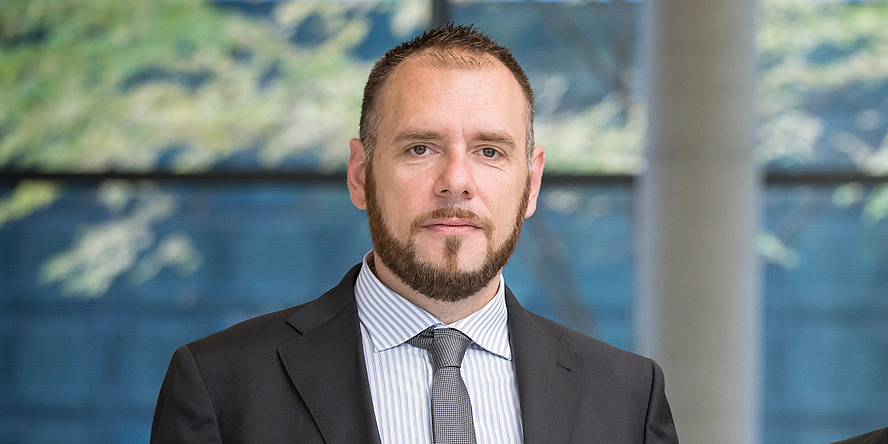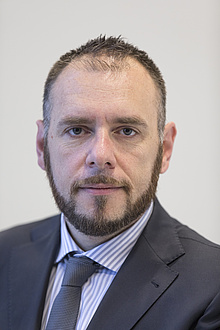POPCRYSTAL: moving towards new technological applications
This finding serves as the starting point for the POPCRYSTAL (Precisely Oriented Porous Crystalline Films and Patterns) project, which has been awarded an ERC Consolidator Grant. The project team is headed by Paolo Falcaro of the Institute of Physical and Theoretical Chemistry at TU Graz. Falcaro was delighted to have secured such substantial funding. As he explained: “The POPCRYSTAL project focuses on producing crystalline materials with precisely aligned pores. If we can accurately control the alignment of pores in MOFs, this will enable us to manufacture highly efficient devices for use in optics, sensors and microseparation.” Over the next five years, Falcaro and his team will analyse all of the mechanisms and parameters related to the formation, control and properties of MOFs. The aim is to develop microfilms and microstructures based on precisely aligned crystals, and to use them in the production of smart components such as microchips and sensors.Huge potential for industrial applications
Looking beyond the POPCRYSTAL project, the research will open up various promising possibilities for the industrial application of MOFs in future. For example, introducing colouring agents into the crystals’ pores could give rise to a host of potential applications in optics, integrating nanoparticles could pave the way for developments in sensor technology, while combining MOFs with other functional materials may lead to advances in microelectronics. Industrial separation processes represent another prospective high-potential application for MOFs. Separation procedures account for a large proportion of the energy consumed by industry. Using MOFs could help to conserve energy, which in turn would enhance companies’ competitiveness on the market.In profile: Professor Paolo Falcaro
Born in Padua, Italy, Paolo Falcaro studied at the universities of Padua and Bologna, and received a doctorate in materials technology from the University of Bologna in 2006. He devoted the early stages of his career to applied research, and developed nanostructured materials for industry in the course of his work for CIVEN and NanoFab. In 2009 he moved to the Commonwealth Scientific and Industrial Research Organisation (CSIRO), Australia’s national scientific research agency, where he headed a research team looking into the production of porous crystals. He has served as a visiting professor at Osaka Prefecture University and Kyoto University, both in Japan. On 1 April 2016, Paolo Falcaro was appointed Professor of Bio-based Materials Technology in the Faculty of Technical Chemistry, Chemical and Process Engineering and Biotechnology at TU Graz, and is deputy head of the Institute of Physical and Theoretical Chemistry. He is also an adjunct professor at the University of Adelaide in Australia. Falcaro’s primary research topic is metal-organic frameworks (MOFs), mesoporous materials and functional nanoparticles for sensor technology and biotechnology applications. This involves work on crystal growth methods, including sol-gel and self-assembly processes, with a view to creating new composite materials. A few weeks ago, a consortium led by Falcaro secured a grant of EUR 1.5 million for a project entitled Porous Materials @ Work, as part of the lead-project funding of TU Graz. The project will be launched in summer 2018. Paolo Falcaro is the sixth TU Graz faculty member to be awarded an ERC grant in only four years.Materials research is part of the university’s Advanced Materials Science Field of Expertise, one of five strategic research focuses.


